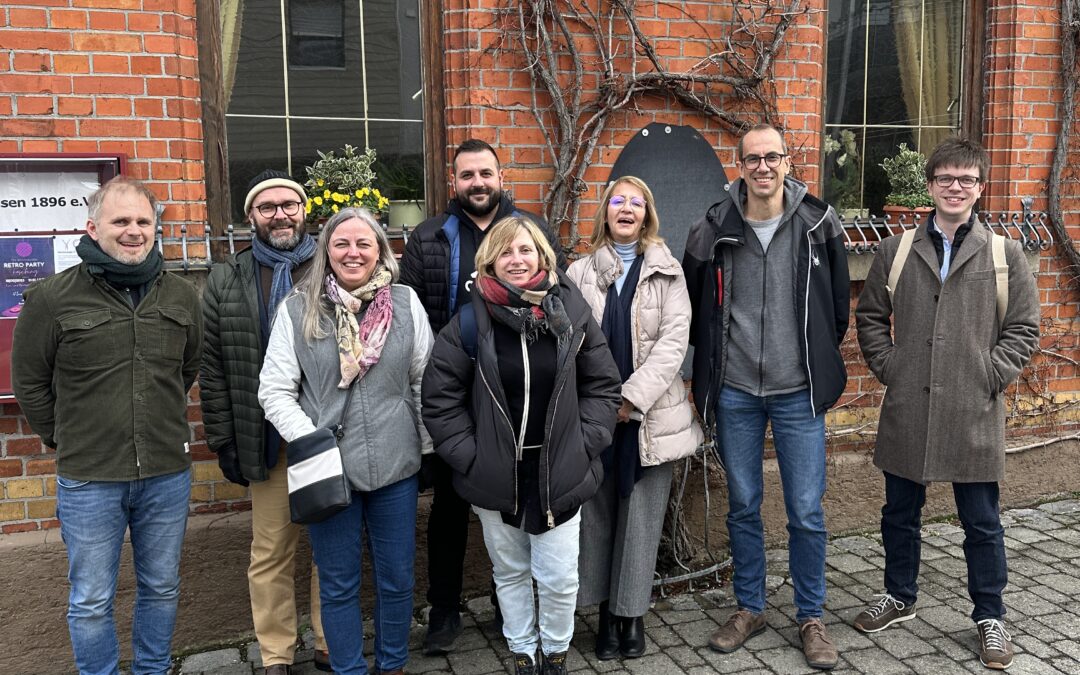From February 22nd through 24th 2023, the DCEx team gathered in Westhausen, Germany, once again. Georg Würffel, authorised signatory at the ZDE, looks back on the project period: “Through DCEx we have learned a lot, both about the state of digitisation here in Germany and in the other European countries. To say the least, there are clear differences in the levels of development. We all still have a lot of work ahead of us, but we also see that a lot of things are currently being initiated that are going in the right direction.”
A total of 200 representatives from politics, business and municipalities were invited. The keynote presentation was given by Professor Markus Weinberger from Aalen University. In his presentation, he explored the question of whether the “Metaverse” vision could be relevant for municipalities in the future. Adrian Groche, technical director at ZDE, then spoke on the topic of artificial intelligence and what the prerequisites are for its successful and, above all, safe use in the municipal sector. Harri Ketamo from Finland joined the event live from Ho Chi Minh City. As the founder of the company “HeadAI”, he is a globally sought-after analyst who uses artificial intelligence to make large amounts of data usable. Ketamo impressively demonstrated the benefits this kind of analysis can have for the sustainability of cities and regions during the conference.
“At the end of the project, we really wanted to have another exchange with those people who are of central importance for the digitalization of municipalities,” says Johannes Röder, who is jointly responsible for the DCEx project at ZDE. “These are, on the one hand, the implementers from the administrations and, on the other hand, the politicians who are responsible for the future framework conditions. We wanted to share our project results with them and initiate a constructive discussion. Unfortunately, we had to admit that the response to our invitation was very sparse. Conclusion on the part of the organisers: Digitalisation is still not a high priority in many small and medium-sized municipalities in Europe. The partners in the five project countries found this out again and again during the course of the project.
Nevertheless, the project team considers the conference a complete success. “The presentations were highly interesting, we learned a lot again and it is a pity that so many municipalities missed out on these exciting discussions,” says Pasi Hellsten, who is responsible for DCEx at the University of Tampere.
On the sidelines of the conference, the project participants visited the remains of the Raetian Limes near Rainau as a cultural programme. “Fortunately, this border is history. And we are working hard to bring Europe a little closer together,” says Johannes Röder.

Recent Comments